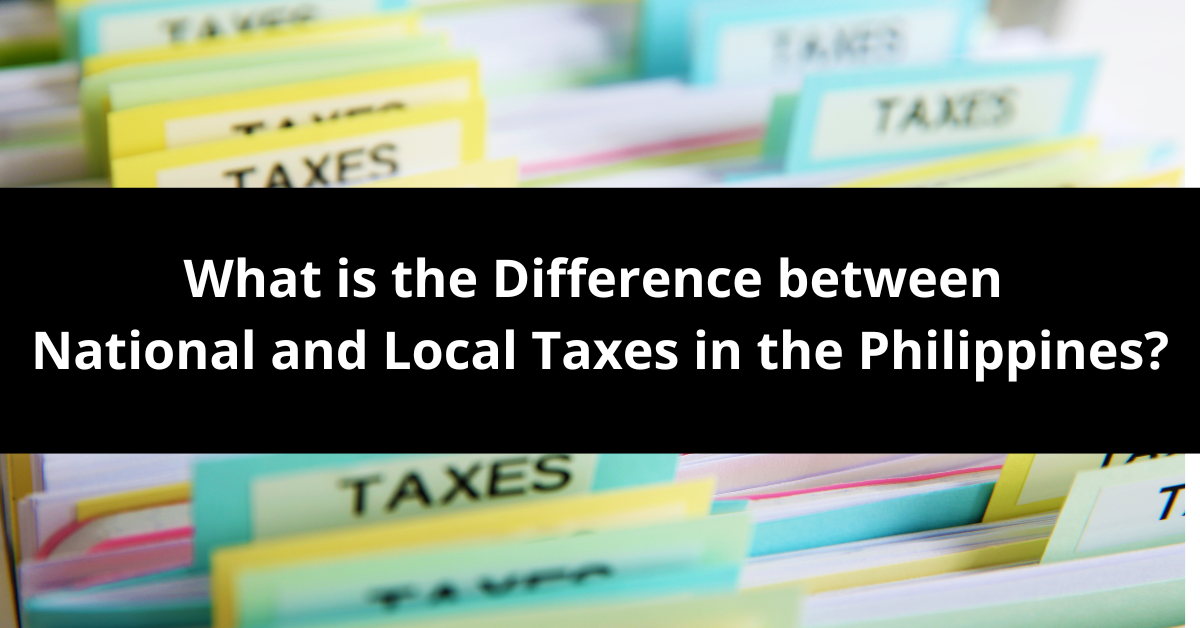What is the Difference between National and Local Taxes in the Philippines?
Navigating and understanding taxes in the Philippines can be a bit of a maze. With the ever-changing tax laws and the different government entities imposing them, we can’t help but get confused sometimes.
Today, we’re going to discuss the main difference between national and local taxes in the Philippines. National and local taxes operate like two distinct yet essential components of a well-functioning society. Each plays a unique role, contributing to the overall purpose of the tax system.
National Taxes
- Income Tax – This is your main source for the government to generate revenue. Individuals and businesses pay this based on their earnings. It’s collected by the Bureau of Internal Revenue (BIR), the national tax agency.
- Value-Added Tax (VAT) – Every time you buy something, a bit of this goes to the national government. It’s a consumption tax added to the price of goods and services.
- Excise Tax – This applies to specific goods and services such as alcoholic beverages, tobacco products, petroleum products, automobiles, mineral products and other non-essential goods.
- Percentage Tax – If you’re not VAT-registered, you might pay this instead. It’s a tax on your gross sales or receipts.
- Estate Tax – When someone passes away, their heirs need to pay this tax on the deceased’s estate before it can be distributed.
Who’s in Charge?
Bureau of Internal Revenue (BIR) – They handle the collection and enforcement of national taxes.
Local Taxes
- Real Property Tax – If you own property, you pay this annually based on the property’s value. It’s collected by the local government unit (LGU) where the property is located.
- Business Tax – Depending on where your business is, you’ll pay this tax to the LGU. It’s usually a percentage of your gross sales or receipts.
- Community Tax (Cedula) – This is like an entrance fee to the local community. Both individuals and businesses pay for it.
- Other Local Taxes and Fees – LGUs can also impose other taxes like amusement taxes, professional taxes, and fees for various services.
Kindly note that local tax policies and rates vary per LGU.
Who’s in Charge?
Local Government Units (LGUs) – These include cities, municipalities, and barangays.
Key Differences
- Scope – National taxes are applied across the entire country, while local taxes are specific to particular areas.
- Collection Agencies – National taxes are collected by the BIR, while local taxes are handled by LGUs.
- Usage – Revenue from national taxes funds the national government and its projects. Local taxes fund local services and infrastructure.
Conclusion
Understanding the difference helps you know where your money is going and ensures you comply with both sets of rules. It is imperative that we understand that both tax laws must be followed and that exposure to any of them might lead to hefty penalties and fines for your business.
Should you need assistance in complying with this, our team at DJKA would be happy to assist you. Just email us at info@djkaacounting.com to request more details.
Related Posts
Recent Posts
- New Features and Functionalities of the Online Registration and Update System (ORUS)
- A Comprehensive Guide to Taxation for Freelancers in the Philippines
- New Tax Laws in 2024: What Changes Filipino Taxpayers Should Prepare For
- How to Avoid Common Tax Mistakes in 2024
- Tax Deductions and Benefits Often Overlooked by Filipino Taxpayers





